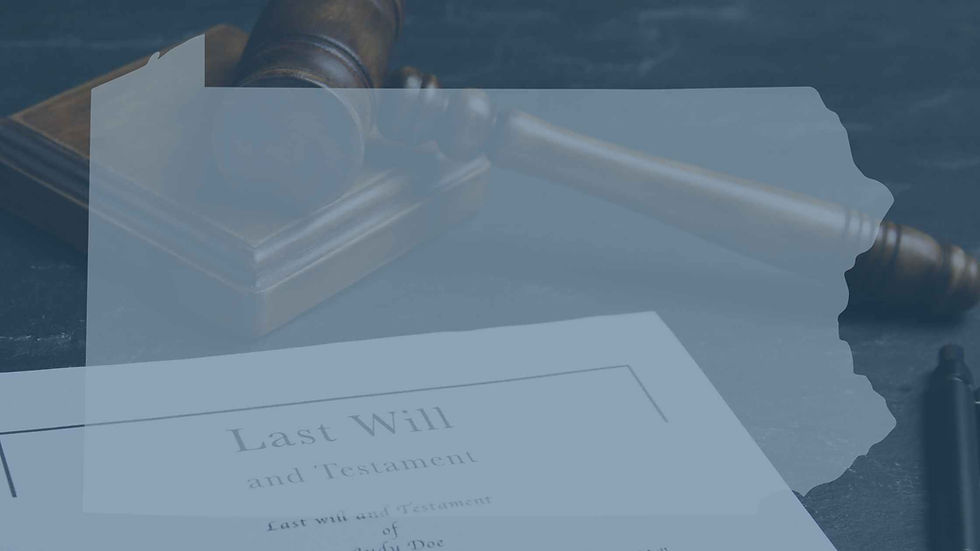Understanding Probate in Pennsylvania: Your Top Questions Answered
- Aug 18, 2025
- 3 min read

Losing a loved one is a difficult experience. Dealing with the legal and financial aftermath can feel overwhelming, especially when you hear the word "probate." But what exactly is probate, and how does it work in Pennsylvania? As experienced Pennsylvania probate attorneys, we're here to break it down for you, answering some of the most common questions we receive.
1. What is Probate, and Should I Be Afraid of It?
In Pennsylvania, probate is the court-supervised process of managing a deceased person's estate. Think of it as a structured way to:
Validate the will (if one exists).
Notify beneficiaries (those named in the will or entitled to inherit by law).
Appoint an Executor (named in the will) or Administrator (if there's no will) to manage the estate.
Collect and manage assets.
Pay debts, taxes, and expenses.
Distribute assets to the rightful beneficiaries.
While some people worry that probate is expensive and time-consuming, that's not always the case. Pennsylvania has relatively low filing fees compared to other states. The time it takes usually depends on how organized the Executor is and how complex the estate is. The court's involvement is minimal unless someone raises a concern.
2. My Family Member Passed Away. Is Probate Always Necessary?
Good news: Probate isn't always required! It depends on how the deceased person owned their assets.
Probate is Usually Needed If:
The deceased person owned assets individually, such as a house, rental property, bank accounts, stocks, or a business in their name alone.
Probate is Usually NOT Needed If:
Assets are jointly owned with "rights of survivorship" (meaning the surviving owner automatically inherits), held in a living trust, or have designated beneficiaries (like retirement accounts or life insurance policies). Payable-on-death (POD) bank accounts also avoid probate.
3. Does Having a Will Avoid Probate?
This is a common misconception! A will doesn't automatically avoid probate. It primarily dictates how assets are distributed, but the type of assets and how they're titled determine whether probate is necessary at all.
4. Does Probate Increase Inheritance Taxes?
Pennsylvania has an inheritance tax, which is a tax on the beneficiary's right to inherit property. It applies whether or not the asset goes through probate.
Who Pays, and How Much?
The amount of tax depends on the beneficiary's relationship to the deceased:
0% for surviving spouses
4.5% for children and grandchildren
12% for siblings
15% for everyone else
Interestingly, probate can sometimes reduce the amount of inheritance tax owed! The Executor files an inheritance tax return, listing all assets and, importantly, claiming deductions for debts and expenses. Without this, beneficiaries might overpay taxes.
5. How Long Does Probate Take?
The timeline varies. Simple estates with easily managed assets (like bank accounts) can be resolved relatively quickly. Complex assets (like real estate or businesses), disputes among family members, or an unorganized Executor can significantly extend the process.
An experienced probate attorney can help the Executor navigate the process efficiently, minimizing delays and potential headaches.
Navigating Probate with Confidence
Probate can seem daunting, but it doesn't have to be. Understanding the basics is the first step. If you're an Executor or Administrator in Pennsylvania, remember that you don't have to go it alone. Our experienced probate attorneys can guide you through every step, ensuring the estate is settled correctly and efficiently. Contact us today for a consultation, no matter where you are in Pennsylvania. We're here to make the process easier for you.


